Legal Resources Blog
We share our insights into the issues surrounding the legal services we provide.
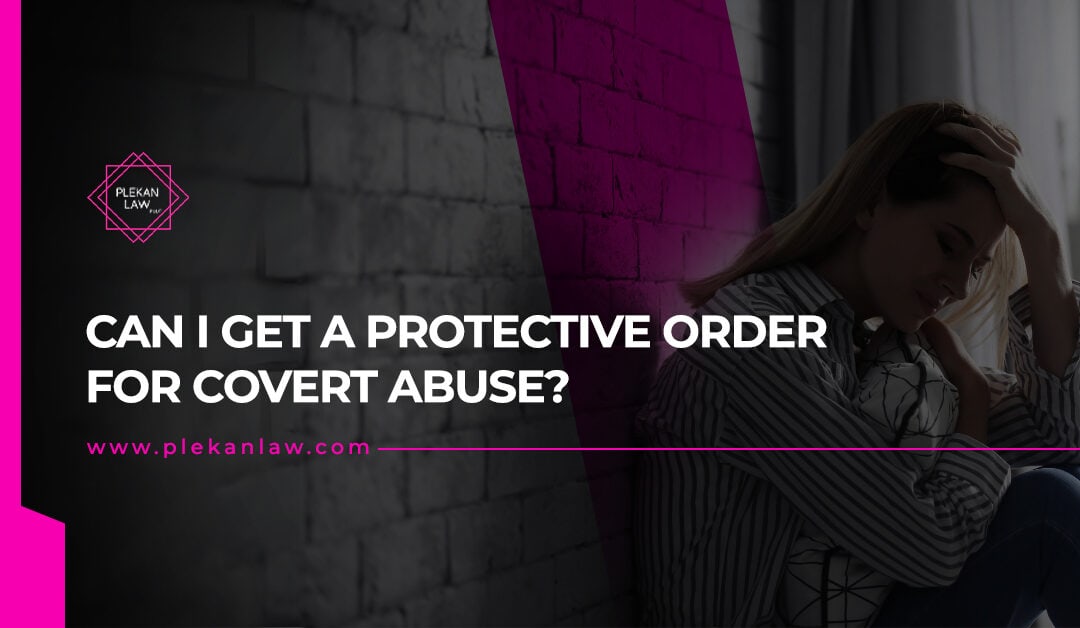
Can I Get a Protective Order for Covert Abuse?
Welcome to our latest discussion on a deeply important and often misunderstood topic: protective orders for covert abuse in North Carolina. If you’re here, it’s likely because you or someone you care about is facing a situation where the harm isn’t always visible to others. It’s tough, isn’t it? When abuse is covert, it masks itself, often leaving those affected feeling isolated and unsure about the validity of their experiences.
In North Carolina, understanding your legal rights and the protective measures available to you is crucial. Covert abuse can manifest in various ways—emotional manipulation, gaslighting, or financial control—none of which should be underestimated. It’s important to recognize that just because abuse isn’t physically apparent doesn’t mean it’s any less real or damaging.
Today, we’ll walk through what North Carolina law says about obtaining a protective order for situations of covert abuse. We’ll explore how the law defines abuse, what qualifies as sufficient grounds for a protective order, and the steps involved in securing one. This process might seem daunting, but remember, you’re not alone. Together, we can navigate these challenging waters, aiming for a safer, healthier future. Let’s dive in and shed some light on your path forward.
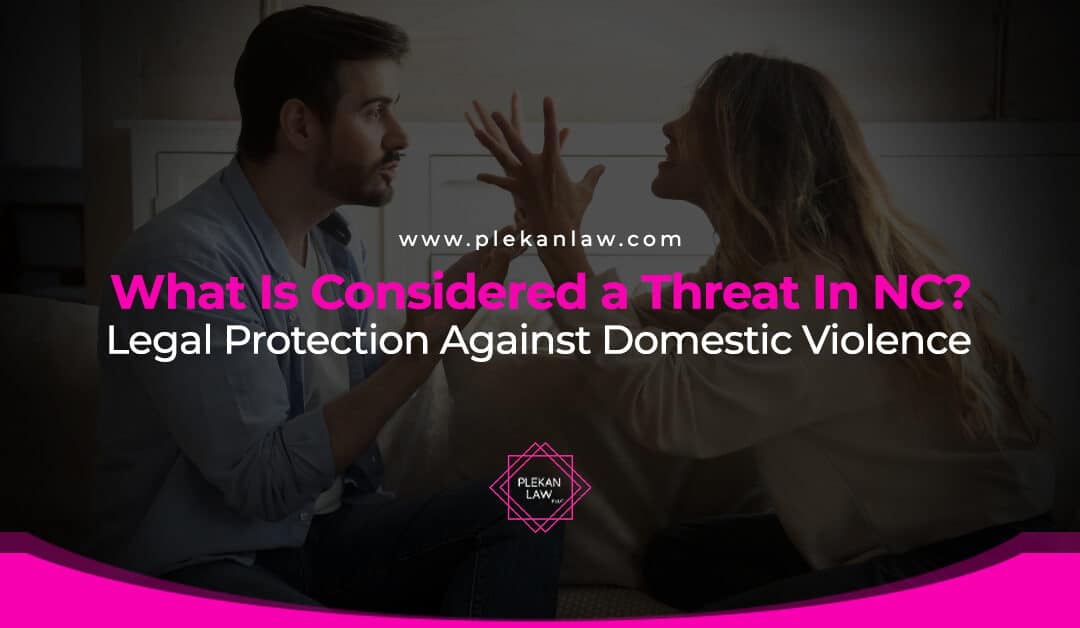
What Is Considered a Threat In NC? Legal Protection Against Domestic Violence
When we talk about domestic violence in North Carolina, the boundaries and definitions are more than just physical; they extend into the realm of threats and fears. Under NC law, “what is considered a threat” includes actions that place someone in fear of imminent serious bodily injury or continued harassment that inflicts substantial emotional distress. If you’ve ever felt the grip of fear from a threat or worried about your safety because of someone’s words or actions, North Carolina’s legal system is equipped to intervene. The law recognizes that threats of harm can be just as damaging as the harm itself. For instance, uttering words that threaten serious bodily harm or demonstrating a behavior that makes a reasonable person fear for their safety are both grounds for seeking a Domestic Violence Protective Order (DVPO). This order is a legal shield, protecting victims from further threats and violence by imposing strict penalties on the perpetrator, ranging from criminal charges to restrictions on their movements and interactions.
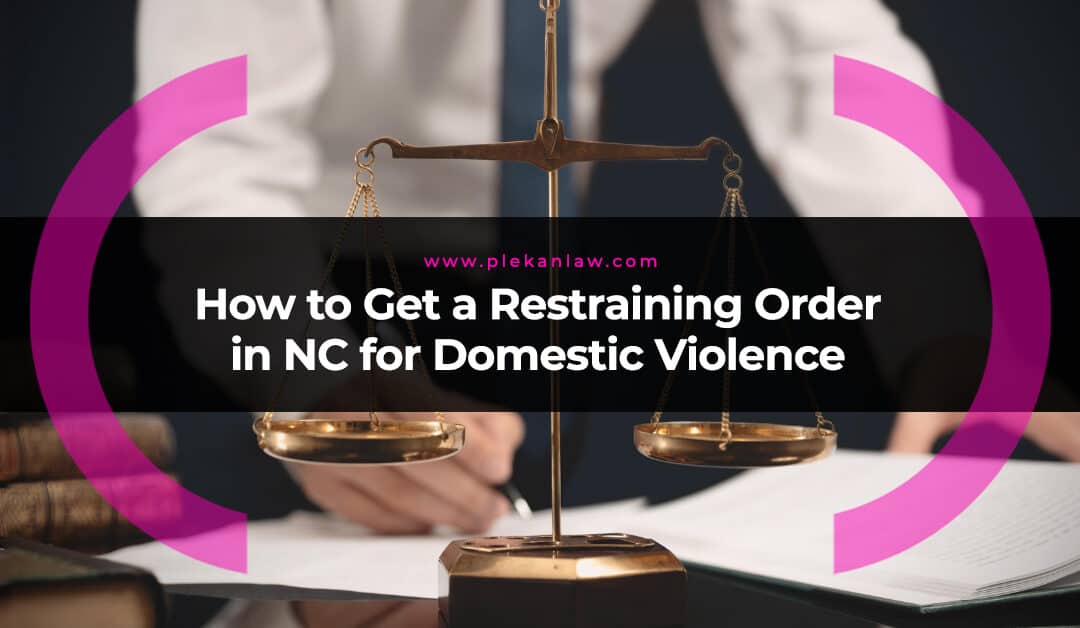
How to Get a Restraining Order in NC for Domestic Violence
If you find yourself in a family or dating situation where you need protection, it’s crucial to understand that you’re not alone. We’re here to walk you through how to get a restraining order in NC. From identifying the type of restraining order that best suits your situation to detailing the legal procedures you’ll need to follow, we’ll provide clear, practical guidance. Whether you’re dealing with harassment, threats, or physical abuse, we understand the urgency and sensitivity of your circumstances and are here to help empower you find the information you need. Stay tuned as we discuss the specifics, including where to file, what documentation you’ll need, and how to prepare for your court appearance. Remember, taking this step is a brave and necessary step toward protecting yourself and reclaiming your peace of mind.

How to Get Emergency Custody of a Child
Navigating the turbulent waters of a custody dispute can be daunting, especially when you believe a child’s safety is at risk. If you find yourself in a situation where you fear for your child’s immediate well-being, seeking emergency custody might be necessary. At this point, it’s crucial to understand how North Carolina law can empower you to protect your loved one. The process to obtain emergency custody isn’t straightforward, and knowing the right steps can make all the difference. First, it’s important to recognize what constitutes an ’emergency.’ In North Carolina, this usually means that the child is in a situation where they might face substantial harm without immediate intervention. This could be due to abuse, neglect, or a parent’s sudden inability to provide care. We’ll guide you through the essential documents you’ll need to gather, how to file an emergency petition, and what to expect in the courtroom. Our goal is to arm you with knowledge and confidence as you step forward to protect your child’s health and happiness.

Who Claims Child on Taxes with 50/50 Custody?
Navigating the complexities of tax season can feel like trying to solve a puzzle with missing pieces, especially when you’re co-parenting with a 50/50 custody arrangement. You may wonder, “Who claims child on taxes with 50/50 custody arrangements?” While the IRS provides clear guidelines on dependents and tax benefits, things get a bit murkier when state laws and individual custody agreements come into play. Here, we’ll dive into what this means for you as a parent in North Carolina so you can approach tax season with confidence. Let’s explore how to navigate taxes together, ensuring you’re informed and prepared to make the best decisions for your family’s financial well-being.

If My Husband Yells At Me, Should I Get a Restraining Order?
Handling the turbulent waters of domestic strife is never simple, especially when it escalates to a point where you fear for your well-being. If you find yourself flinching at raised voices, dreading confrontations that escalate into threats or more, it’s crucial to know you’re not cornered. North Carolina law offers hope through Domestic Violence Protective Orders (DVPOs), designed to shield you from harm and offer some peace in the storm. Understanding when to take the step to seek a DVPO is essential. Let’s look at what constitutes domestic violence in the eyes of North Carolina law, guide you through the steps to obtain a DVPO, and discuss how it can reshape the landscape of your daily life towards a horizon of safety and dignity.

Moving Out of State with Child: No Custody Agreement Means I’m Good, Right?
Thinking of moving out of state with your child, but there’s no custody agreement in place? You might be wondering, “I’m good to go, right?” It’s a common question, and you’re not alone in asking it. The road ahead might seem clear, but it’s filled with legal turns you need to navigate carefully. Before you pack your bags and map out your new route, let’s dive into what this journey really entails. We’re here to guide you through this process, ensuring you’re not just good to go, but fully prepared for what lies ahead. With the right knowledge and a thoughtful approach, you can make this transition as smooth as possible for both you and your child. Let’s consider your next move (literally!) together, ensuring you understand before making your decision with confidence and care.

What Not to Say in Child Custody Mediation
Imagine for a moment that a guide can shine a light on what not to say in child custody mediation, so you can keep the focus on creating the best outcome for your little ones. This blog is your guide to help you avoid common mediation pitfalls. When it comes to child custody, every word matters. Mediation is a chance to find common ground; What you say can either build bridges or walls. Saying something out of anger or frustration that is not backed by the child’s best interests can be detrimental. Getting informed and prepared ensures that you contribute positively toward reaching a solution that mirrors the court’s priority: the happiness and well-being of your child. Let’s look at what to say and what NOT to say so that your mediation works for your children’s best outcome.

Protective Order vs Restraining Order: Is There a Difference?
Imagine, for a moment, you’re in a place where you don’t feel safe at home. It’s a tough spot to be in, right? This is where knowing your rights and legal protections becomes more than just useful—it becomes life-changing. So, let’s break down the difference between protection and restraining orders in plain, straightforward talk. If you or someone you love feels unsafe at home, the law has your back. You can take legal steps to protect yourself and your loved ones from harm. So let’s learn about these terms together, with openness, compassion, and a dash of courage.
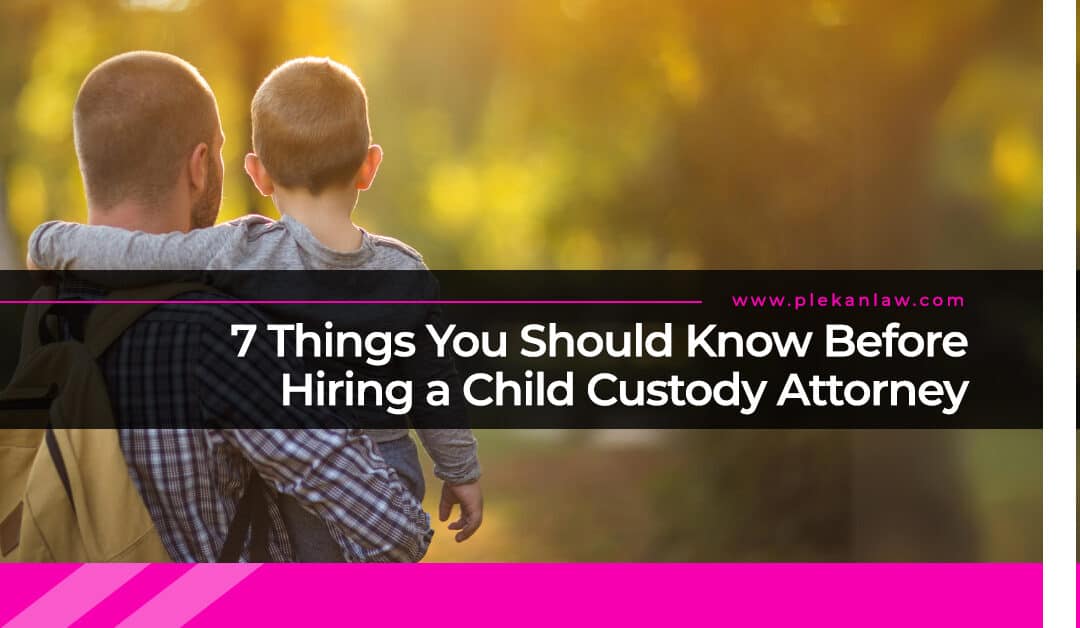
7 Things You Should Know Before Hiring a Child Custody Attorney
When you’re facing a child custody battle in North Carolina, the stakes couldn’t be higher. It’s not just about legal documents and court appearances; it’s about your kids, your family’s future, and your peace of mind. Here’s the good news: you’re not alone. This guide is your first step toward finding an ally who can help you navigate the complexities of North Carolina’s legal system, ensure your voice is heard, and fight for the best interests of your children. So, take a deep breath. Together, we’ll explore the essential things you need to know before hiring a child custody attorney in NC, with the goal of making this challenging journey more manageable.
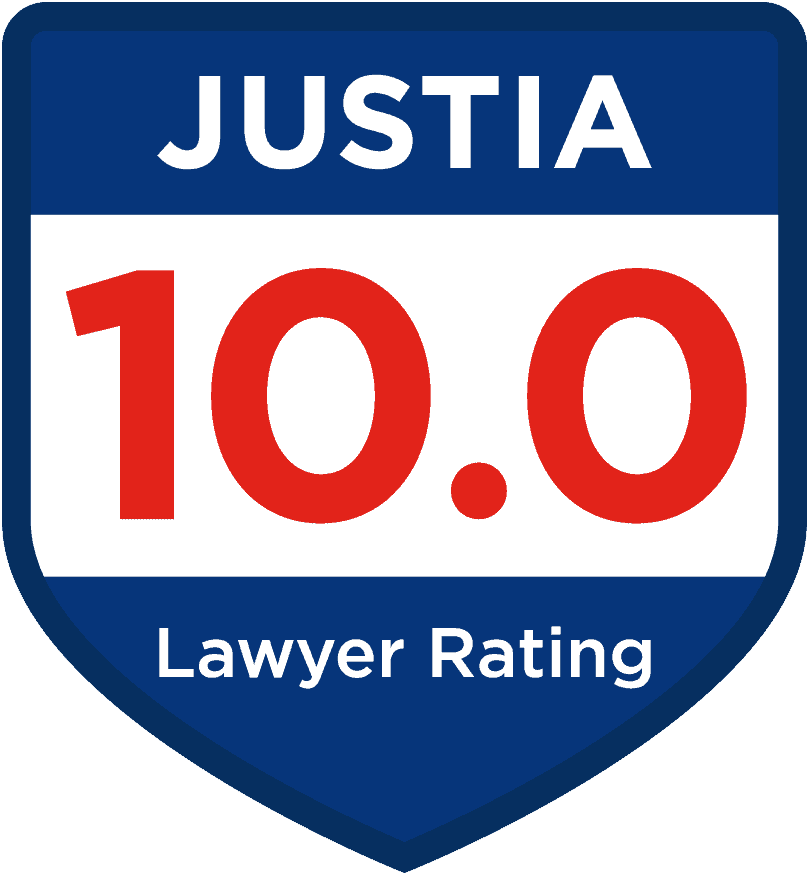
Contacting Plekan Law, PLLC through this site or via email does not create an attorney-client relationship. Do not send information relating to your legal question or matter through this site or by email. After an attorney-client relationship has been established you will receive information on our communication policy.
Site by Whoosh Agency | Disclaimer
